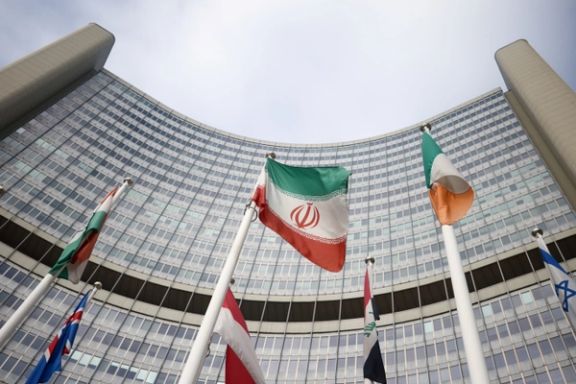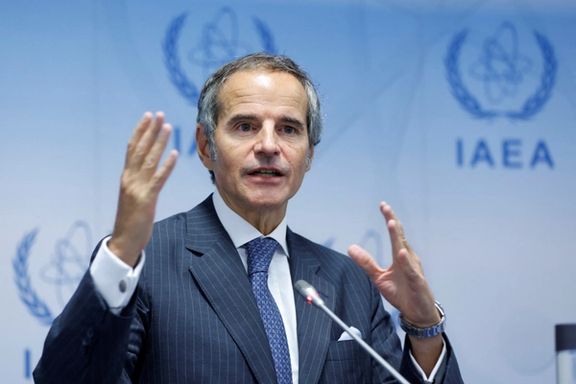US, E3 Threaten Iran With IAEA Resolution

The US and three European allies have warned of another resolution at the UN nuclear watchdog's board in case Iran fails to clarify on uranium traces found at undeclared sites.

The US and three European allies have warned of another resolution at the UN nuclear watchdog's board in case Iran fails to clarify on uranium traces found at undeclared sites.
Britain, France, Germany -- the so-called E3 -- and the US issued the warning during a quarterly meeting of the International Atomic Energy Agency Board of Governors on Thursday, but they did not specify whether or when they might act on it.
The warning came as the West's standoff with Iran has been complicated by secret US-Iran talks over a prisoner swap agreement and releasing billions of dollars of Iran’s oil revenues frozen in foreign banks due to Washington's sanctions.
A November resolution ordered Tehran to cooperate urgently with the IAEA's investigation into the presence of uranium particles at three undeclared sites, since narrowed down to two.
"If Iran fails to implement the essential and urgent actions contained in the November 2022 Resolution and the 4th March Joint Statement in full, the Board will have to be prepared to take further action in support of the (IAEA) Secretariat to hold Iran accountable in the future, including the possibility of a resolution," the four Western powers said in a statement to the 35-nation IAEA board.

Western powers have recently decried Iran for its lack of cooperation with the IAEA on issues like the re-installation of surveillance cameras removed last year and the enrichment of uranium to levels nearing weapons-grade purity at 60%. However, in parallel, diplomats report that the United States has been engaging in undisclosed "de-escalation" discussions with Iran, potentially complicating matters.
These secretive talks, which Washington has not officially acknowledged, encompass various issues, including Iran's recent reduction in enrichment to 60% purity.
Iran typically reacts to resolutions against it by expanding or accelerating its nuclear activities. Iran maintains that its nuclear program is strictly for peaceful purposes, while Western powers argue that there is no credible civilian explanation for it, particularly uranium enrichment at higher level. The IAEA has never confirmed the peaceful nature of Tehran's nuclear program.
The Thursday joint statement addressed the re-installation of monitoring equipment, such as cameras, but only a fraction of the cameras requested by the IAEA have been installed.
Instead of pursuing another binding resolution against Tehran due to the lack of progress on these issues at this week's IAEA board meeting, Western powers, along with 59 other countries, issued a non-binding joint statement, urging Iran to "act immediately" on various issues, including providing an explanation for the uranium traces.
On the opening day of the IAEA board of governors meeting on September 11, IAEA's Director General Rafael Grossi bemoaned Tehran's failure to respond to IAEA monitoring demands and questions regarding the traces of uranium. He cautioned that his agency is not happy with how relations with Iran progress on the outstanding nuclear issues.
Despite remarks by Grossi, Nasser Kanani, the spokesman for the Iranian Foreign Ministry, said Iran and the IAEA have made “considerable progress” in boosting cooperation based on the March agreement.
“It’s a regret that England, Germany, France and the US, which have certain motivations and positions against Iran, have made Iran-IAEA technical cooperation a subject of their political moves,” he said, adding that the Western states did this in the name of defending the agency and the safeguards, but they aimed to distort the reality of Iran’s sincere cooperation with the agency.
“Of course this measure is not new and also not surprising. In the previous Board of Governors meeting, they had a similar show in the form of verbal attacks and accusations against Iran,” he said.
For years, the IAEA has tried in vain to verify the nature of Iran’s nuclear activities, as the regime obstructs inspections and dodges questions in what many see as a time-buying tactic.
The Biden administration has so far been reluctant to exert more pressure on Iran over its nuclear program and has instead endeavored to buy the regime’s cooperation with a side deal.